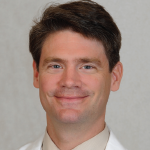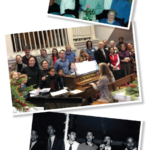After three rewarding years serving as chair of the Government Affairs Committee (GAC), it is bittersweet to be writing a final message. This month, we welcome Blair Solow, MD (@BlairSolowMD), as the new GAC chair, and the ACR’s advocacy efforts will continue under her excellent leadership.

Dr. Angus Worthing
As I was reflecting on what I wanted to say in my final post, I kept thinking about the amazing patients I have met through this role. It is relatively easy for rheumatologists to talk to lawmakers about our experiences as doctors. It is another thing entirely for our patients to share intimate, and sometimes painful, details about their private lives and medical histories with a roomful of strangers, all for the sake of helping others. That takes real courage and fortitude, and I’ve been honored to share the podium with many patient advocates during Congressional briefings, hearings and meetings with lawmakers.
Great day on Capitol Hill with amazing rheumatologists(including my own!), speaking with Maryland lawmakers about issues relating to health care and rheumatic conditions. So excited to participate in the process.#RDAM,#Act4Arthritis,#Simpletasks pic.twitter.com/xR2IMg6tVs
— Laura Torchinsky (@Lwtorchi) September 10, 2019
I’ve also learned a lot about advocacy along this journey. First, every voice matters. From the moment one of us decides to speak up about an issue to the moment our collective efforts culminate in a victory on Capitol Hill, there is no substitute for the power of individual voices and stories. Margaret Mead was right when she said, “Never doubt that a small group of committed citizens can change the world. Indeed, it is the only thing that ever has.”
We live in an era of constant change to healthcare policy, and there are constant threats to the rheumatology profession. Every voice matters!
Thanks Senator @DougJones
for leading #StepTherapy reform! Alabama team
advocates including Drs. Crayne & Schnell also spoke about solving the workforce shortage so kids can see a specialist when they need it!@schnell_amanda @CrayneCB @UABRheum pic.twitter.com/VNE7Oh5Qzs— Angus Worthing MD (@AngusWorthing) September 10, 2019
Second, I’ve learned that despite the hyper-partisanship in Washington, D.C., it is still possible to find common ground when it comes to protecting our profession and our patients’ access to care and treatments. The solutions we advocate for in the rheumatology community are common sense, bipartisan initiatives that leaders on both sides of the aisle can support. We cannot allow ourselves to become jaded by what sometimes feels like a polarized political environment. Change is not easy, but it is possible.


